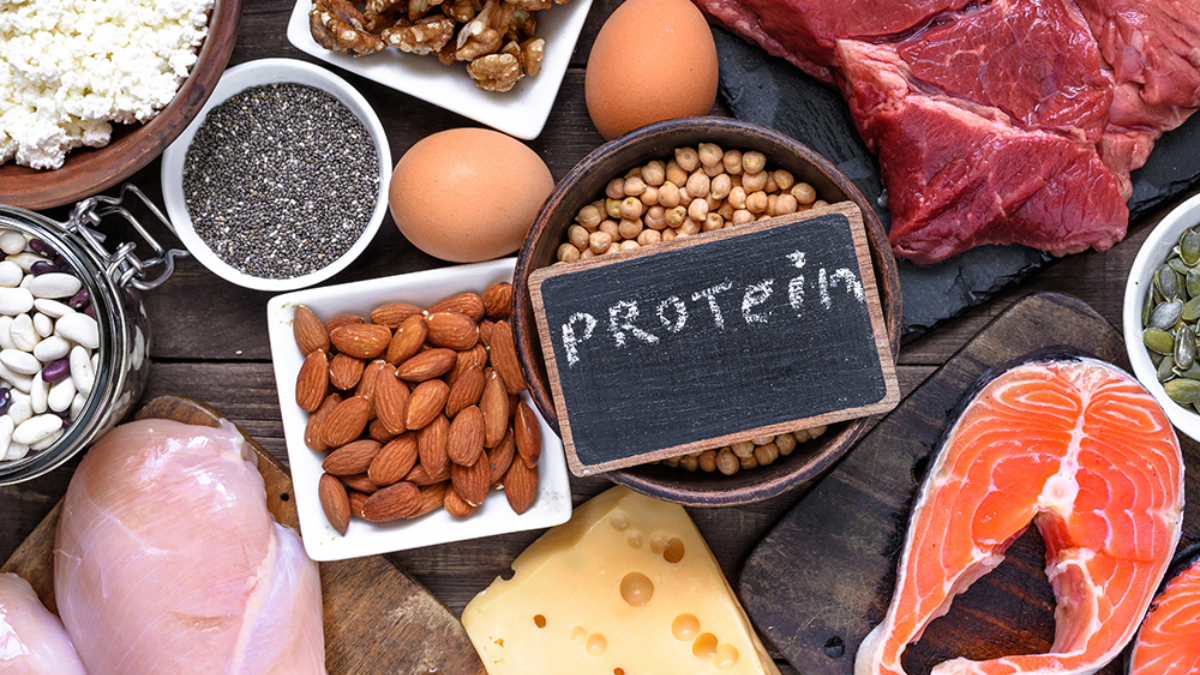
Protein is one of the most important nutrients our body needs to function efficiently. It plays a crucial role in muscle development, hormonal balance, tissue repair, and immune support. Yet, despite its importance, many people unknowingly fall short of their daily protein requirements. This nutritional gap can manifest in subtle — and sometimes alarming — physical and mental changes.
Table of Content:-
Fitness coach Dillon Swinney, known for his practical health and wellness advice on social media, recently took to Instagram to highlight eight warning signs that may indicate a protein deficiency. Understanding these signals can help individuals make timely dietary changes and avoid long-term health consequences.
Signs You Are Not Eating Enough Protein
View this post on Instagram
Persistent Muscle Soreness
After a tough workout, it’s normal to feel a bit sore. However, if muscle pain lingers for days, it might be more than just a tough session. Swinney explains that prolonged soreness may point to inadequate protein intake. Protein is necessary for muscle repair and recovery, and a shortage can leave your muscles struggling to heal.
Declining Strength and Athletic Performance
If you’ve noticed a plateau or even a drop in your physical performance, whether at the gym or during daily activities, low protein levels could be the culprit. Without sufficient protein, your muscles can’t rebuild effectively, leading to a decrease in strength and endurance. This can make your workouts feel harder and less productive.
Also Read: From Weight Gain To Tooth Decay, 10 Shocking Signs You’re Addicted To Sugar: Expert Weighs In
Constant Fatigue
Fatigue that doesn’t seem to lift, even after a full night’s rest, could be linked to a lack of protein. Swinney points out that protein supports metabolic processes and energy production. When your intake is too low, you might find yourself dragging through the day, no matter how much sleep you get.

Delayed Injury Recovery
Protein is essential in rebuilding tissue, not just muscles, but skin, ligaments, and internal structures too. If your cuts, bruises, or sports injuries are healing slowly, it could be a sign that your body isn’t receiving the nutrients it needs to recover properly.
Rising Body Fat Levels
Skipping out on protein doesn’t just affect your muscles; it can also impact your body composition. Without enough protein to maintain lean muscle mass, your metabolism can slow down, making fat gain more likely. This shift can happen even if you’re not increasing your caloric intake.
Also Read: Fart Walks: The Surprising New Exercise Backed by Doctors for Healthy Ageing
Getting Sick More Often
Your immune system relies heavily on amino acids — the building blocks of protein — to produce antibodies and maintain cellular health. Swinney warns that a weakened immune system and frequent illnesses could be your body’s cry for more protein.

Hair Thinning and Weak Nails
Hair and nails are made primarily of keratin, a protein. If you’re not consuming enough protein, your body might prioritise more essential functions, resulting in brittle nails and hair that breaks or falls out more easily.
Intense Hunger and Cravings
Still hungry right after eating? Protein has a unique ability to keep you feeling full for longer. Inadequate intake can cause hunger hormones to go haywire, often leading to strong sugar cravings and overeating, Swinney notes.
How Much Protein Do You Really Need?
While individual protein needs vary depending on age, gender, and activity level, a general guideline suggests consuming 0.8 grams of protein per kilogram of body weight. For those engaging in regular exercise or strength training, that number can rise to 1.2–2.0 grams per kilogram.

Sources of protein include lean meats, poultry, fish, dairy, legumes, eggs, and plant-based options like tofu and quinoa. If you’re unsure about your protein intake, consulting a registered dietitian or a nutrition expert can help tailor a plan that meets your specific needs.
Bottomline
Recognising the signs early can help you make smarter food choices and avoid long-term health complications. So, the next time you feel unusually tired or notice unexpected changes in your body, it might be time to evaluate what’s on your plate.
Also watch this video
How we keep this article up to date:
We work with experts and keep a close eye on the latest in health and wellness. Whenever there is a new research or helpful information, we update our articles with accurate and useful advice.
Current Version